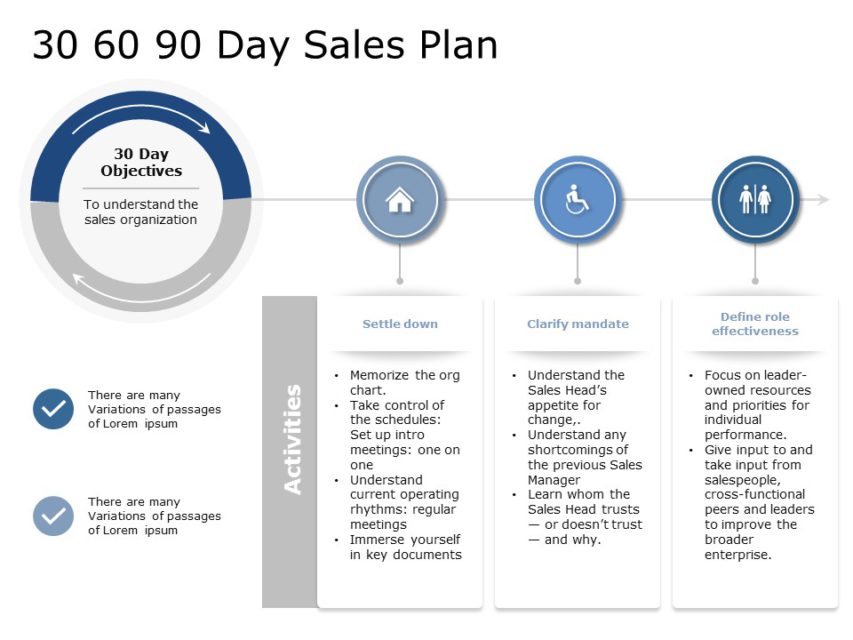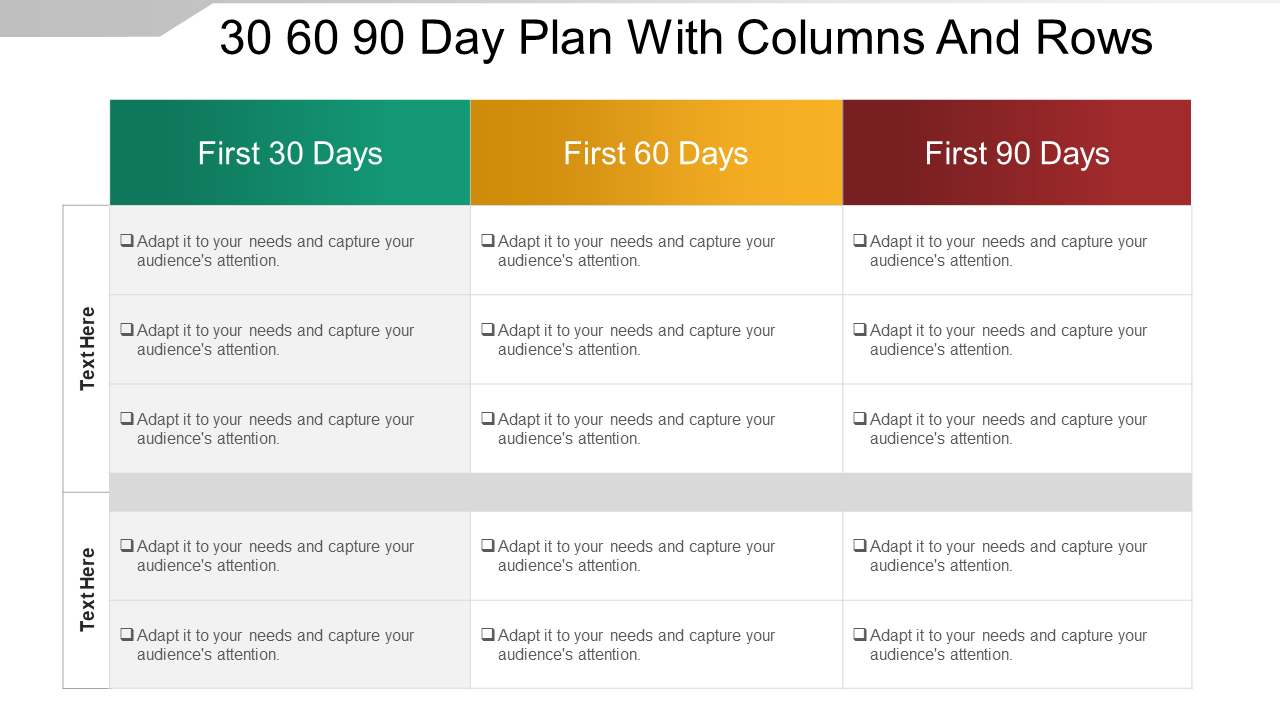
The fact that you went to the trouble of creating a plan at all is going to show that you are energetic, determined, and enthusiastic about the job. What did you get right? What did you get wrong? What input does he or she have for you? The conversation alone will elevate you in the eyes of that hiring manager. You're supposed to discuss it with the hiring manager. The point is to have it as a high-level conversational piece in your interview. But the point of the 90-day plan is not to get it perfect. Worry over making a mistake with your plan is a big reason most job seekers don't create these plans. Look at their corporate pages, as well as the pages of employees or groups. Google is good, but LinkedIn and Facebook can be true gold mines. How do you find information for your 30-60-90-day plan? You might have to do some digging to get these kinds of details. To discover these kinds of specifics, it's important that you research the company as well as the goals for the specific position. Or if you know the name of the training they put new employees through, you can include that.
#SALES MANAGER 30 60 90 DAY PLAN SOFTWARE#
So if you can find out the name of the software they use and put that name into your 30-day section, that's great. The more details you can incorporate into your plan, the better. What are you going to do for them? By the time you get here, your hiring manager is going to be picturing you in the job.and already thinking about hiring you. This 90-day section is going to highlight what you are bringing to this party. You should know your way around by now and be initiating things on your own: thinking of ways to increase customers or revenue, generating ideas to save time or money, implementing plans or schedules, fine-tuning your schedule, and continuing to get performance feedback. By now, you should be up to speed, rolling with some independence, and contributing significantly. The last 30 days ( 90-day ) are the "taking off on your own" part. A big point here in this 60-day section is getting feedback from your manager to see how you're doing. The next 30 days ( 60-day ) are focused on more field or independent time, less training, more customer introductions, more vendor introductions, reviews of customer satisfaction.just getting deeper into things. If you can show how you can get up to speed on your own, they love it. Not every boss has a lot of time to train you. This part of the plan is all about getting your feet wet.

So, most of the items in your 30-day plan should be along the lines of attending training, mastering product knowledge, learning specific corporate systems, traveling to learn your territory (if you’re in sales), meeting other members of the team, or reviewing accounts.

The first 30 days of your plan is usually focused on training–learning the company systems, products, services, software, vendors, and/or customers.

This plan is going to help you have a wildly successful job interview. If you understand just how much 30-60-90-day plans can help you get the job, then your next question is, " How do I write a 30-60-90-Day Plan?"ģ0-60-90-day plans do take some work to research and put together, but the investment in time and effort will pay off big for you in terms of money and job offers.


 0 kommentar(er)
0 kommentar(er)
